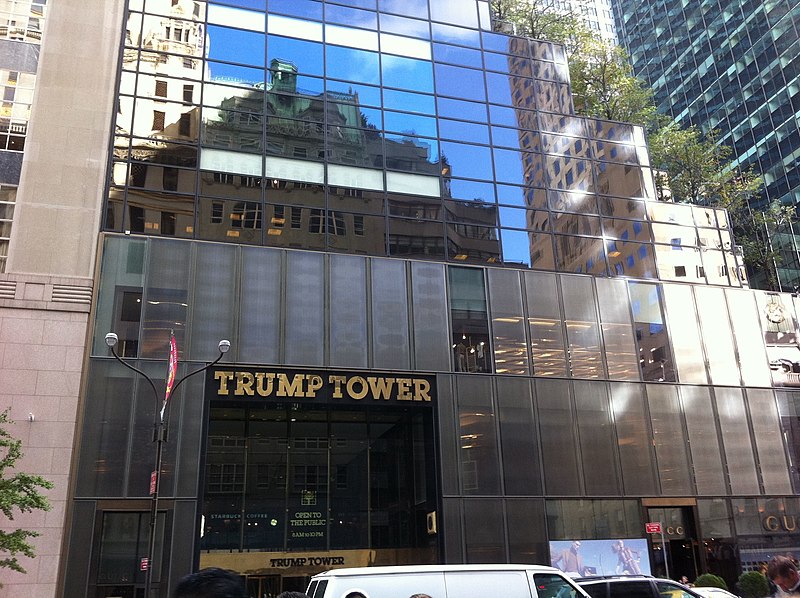
Donald Trump has provided testimony in courtrooms as diverse as that of a football team owner, casino developer, and airline purchaser. He once claimed in a deposition that his actions as
president had saved "millions of lives" by preventing nuclear conflict. On another occasion, he expressed concerns about the perils of airborne fruit.
Accustomed to a life filled with legal battles and trials over the years, Trump now finds himself in an extraordinary role as a witness. He is the former Republican president, fighting to safeguard his real estate empire, which propelled him to fame and the White House.
Trump is scheduled to give testimony on Monday in his New York civil fraud trial, a deeply personal matter that could have profound implications for his image as a successful businessman and the control of prestigious properties like Trump Tower. This highly anticipated testimony follows that of his elder sons, Eric and Donald Trump Jr., who are executives in the Trump Organization and testified last week. Ivanka, his eldest daughter, is also set to testify on Wednesday.
According to the Associated Press's examination of court records and news coverage, Trump has appeared as a witness in court in at least eight trials since 1986. He has also provided testimony in over a dozen depositions and regulatory hearings.
In 1985, he was called to testify before Congress as the owner of the USFL's New Jersey Generals. In the same year, he testified on behalf of his lawyer and friend, Roy Cohn, in a state disciplinary hearing that eventually led to Cohn's disbarment. In a display of his characteristic fiery persona, in 1986, Trump told New Jersey's casino commission that plans for highway overpasses near one of his casinos would be a "disaster" and "catastrophe."
These testimonies, documented in thousands of pages of transcripts and, in some cases, on videotape, provide insights into Trump's likely approach when he testifies on Monday. His behavior as a witness demonstrates striking similarities to his role as president and his current standing as a political figure. Trump's rhetorical style in legal proceedings echoes his political demeanor, characterized by a blend of ego, charisma, defensiveness, aggression, sharp language, and deflection. He has displayed combative and boastful behavior, but has also been known to employ vagueness and dismissiveness.
In his testimony in the USFL's antitrust lawsuit against the NFL in 1986, Trump vehemently denied allegations that he had spied on NFL officials at one of his hotels, labeling the claim as "such a false interpretation it's disgusting."
In 1988, as he sought to purchase Eastern Air Lines' Northeast shuttle service, Trump turned on the charm, flashing smiles at the judge's female law clerks and exchanging pleasantries with the bailiff during a court hearing in Washington. He testified that his $365 million purchase, which was later approved, would boost employee morale significantly.
During a case related to boxing in 1990, Trump described a Mike Tyson fight planned for one of his Atlantic City casinos as "one of the greatest rematches you could have." In 1999, accused by two individuals of excluding them from a riverboat gambling project, Trump professed ignorance, stating, "I was shocked by this whole case. I had no idea who these people were."
Last month, Trump briefly took the witness stand in the New York case to explain comments made outside of court that the judge deemed to be in violation of a limited gag order.
Before that, his most recent courtroom testimony was in 2013, two years prior to his successful presidential campaign. In that case, an 87-year-old widow from suburban Chicago had sued him over changes to contract terms for a hotel and condominium tower in which she had invested. Trump became increasingly agitated during his testimony, raising his arms and exclaiming, "And then she sued me. It's unbelievable!"
In 1990, Trump testified in a lawsuit related to his company's failure to make pension contributions for approximately 200 undocumented Polish workers who were hired to demolish a building to make way for Trump Tower. A year later, he was in court again, testifying against an individual who claimed to have a contract to develop Trump's board game and asserted ownership of 25% of the game's profits.
Trump prevailed in that case and another lawsuit in 2005, in which he testified that a construction company had "fleeced" him by overcharging him $1.5 million for work on a golf course in New York's Westchester County.
When previously questioned about his business and financial affairs, Trump has sometimes shifted blame and responsibility. In a 2013 deposition related to a failed Florida condo project, he placed blame on an employee for inaccuracies in paperwork that suggested he was involved in a project when he was not. Another common theme in Trump's depositions is his apparent surprise at being taken so seriously when he promoted his real estate projects.
"You always want to present a property in the best possible light," Trump commented during a December 2007 deposition in a lawsuit against a journalist he accused of downplaying his wealth. "No different from any other real estate developer, businessman, or politician." Photo by Hazel Estrada, Wikimedia commons.






































